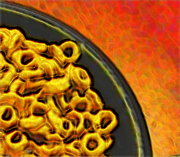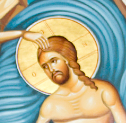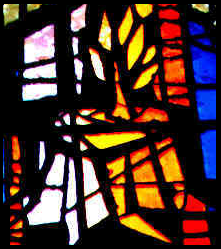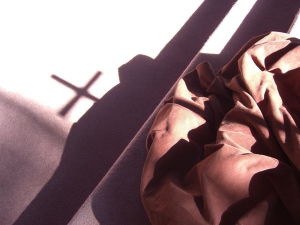Salt has been in the news a lot recently. The Department of Agriculture is changing its nutritional recommendations and considering switching from a food pyramide to a pie chart that looks like your dinner plate. Pie chart sounds a lot tastier than food pyramid, doesn’t it? What didn’t change was the recommendation that individuals limit their salt intake to 1500-2300mg a day, that’s about half a teaspoon to a teaspoon.
We love the taste of salt, and we love it for a reason; our bodies need it to function well. In addition to helping maintain the right balance of fluids, salt helps transmit nerve impulses, and it plays a significant role in the contraction and relaxation of muscles. For those of you who are into chemistry or physiology, unrefined salt contains all four cationic electrolytes, i.e. sodium, potassium, magnesium, and calcium, as well as other vital minerals. Unrefined salt is a convenient package; it’s like we are meant to have a little bit of ocean within us. I love that we need a spoonful of ocean in our bodies to be well.
The big salt story on the news, of course, is not about milligrams but thousands of tons of salt. These are some quotes from the last couple of weeks from Nashville news outlets:
Road salt has become a hot commodity in Middle Tennessee after the biggest snowfall since 2003.
Almost no one has it, and everyone needs it.
Even TDOT, the best salt customer in the state, can’t get salt delivered.
There are places, such as Hickman County, that don’t have salt and don’t have money for any more; they’re done.
And my favorite,
Salt is a savior on Middle Tennessee roads.
Nobody ever writes about pepper like that.
Before people started using canning or artificial refrigeration to preserve food, salt had already been the best-known food preservative, especially for meat, for thousands of years. One of the oldest verifiable saltworks on earth dates back to at least 6000 BC. During the third millennium BC, Egyptians and Phoenicians traded salt fish and salt from North Africa throughout the Mediterranean. During the first millennium BC, Celtic communities bought wine from Greece and Rome, and they paid for it with salt and salted meat.
 Salt has been a crucial ingredient in just about any known human culture, and it is no surprise that it gave rise to a variety of symbolic uses. Because it is such a powerful food preservative, salt came to represent permanence and protection.
Salt has been a crucial ingredient in just about any known human culture, and it is no surprise that it gave rise to a variety of symbolic uses. Because it is such a powerful food preservative, salt came to represent permanence and protection.
In ancient Near Eastern cultures, including Israel, salt was eaten by the parties to agreements and treaties. Sharing salt expressed a binding relationship. In the Bible, the expression “covenant of salt” (See, e.g. Numbers 18:19 and 2 Chronicles 13:5) illustrates the permanent nature of God’s covenant with God’s people. We like to talk about “rules written in stone” or “iron laws,” but God’s covenants are “covenants of salt,” forever based in a living relationship of partners who have bound themselves to each other. “You shall not omit from your grain offering the salt of the covenant with your God,” we read in Leviticus, “with all your offerings you shall offer salt (Leviticus 2:13).” There certainly was the notion that salt would purify the offering to make it acceptable as a sacred gift, but the pinch of salt also served as a reminder that covenant fidelity went beyond bringing gifts to the temple and included daily life in the community.
In the ancient Near East, and just about anywhere else in the world at different times, any kind of contamination and spoilage were attributed to the machinations of demons. People knew the preservative power of salt, and scholars suspect that it was for that reason that salt became the substance of choice to ward off evil forces. Cultural anthropologists are quite confident that Jewish mothers began rubbing their newborn babies with salt to protect them against evil spirits, as mothers and midwives continue to do to this day in many parts of the world. But I can’t help but wonder – when a mother in Israel rubbed her infant with salt, didn’t she also rub that little one, head to toe, with the covenant promises of God? Didn’t she put a grain of salt on her child’s lips to give him or her a taste of God’s faithfulness? The truth is, we don’t know what thoughts went through her mind as she did what her mother and grandmother, and their mothers before them, generation to generation, had done. Salt didn’t have just one symbolic meaning; it was a substance that offered itself as a vessel that could contain a wealth of meaning.
When Jesus says to us, “You are the salt of the earth,” what does it mean? He says it right after he spoke a blessing on those who suffer for his sake, “Blessed are you when people revile you and persecute you and utter all kinds of evil against you falsely on my account. Rejoice and be glad, for your reward is great in heaven, for in the same way they persecuted the prophets who were before you.” Faithfulness to the way of Jesus will evoke reproach, resistance, and rejection – and he tells us to rejoice, because we are in the company of God’s prophets. We may feel like avoiding the confrontations that come with living as followers of Jesus; we may feel like withdrawing into a smaller, safer world of privatized religion; we may feel that adding a little religious icing to a thoroughly worldly cake is just fine. And so he reminds us who we are:
You are the salt of the earth. You are crucial to the world’s wellbeing. You add a particular flavor. Your presence in the world preserves what is good and heals what is out of balance.
I may be taking this a bit far here, but perhaps I am not: You are the salt of the earth. You are the de-frosting agent that helps thaw the frozen relationships of cold warriors and the slick paths of ice-cold corporate interests.
You are the salt of the earth. You are the living reminder of God’s faithfulness in the world, and the world cannot be without you.
Our bodies need a little bit of ocean in them to flourish. The world needs disciples of Jesus to be reminded of the covenant that binds us to God and to one another like an ocean of grace. What might that look like in your daily life?
There are plenty of bullies in our communities, not just in our schools, and you know that you need to do what you can to stop them, and you know that you may get a bloody nose, but you do it anyway. Salt of the earth.
Everybody at work, it seems, thinks jokes about lesbians are hilarious, and you know that this isn’t just a matter of your company’s non-discrimination policy, and you know, if you stand up and say, “Stop it, this is not funny,” that they will call you names behind your back or in your face, but you do it anyway. Salt of the earth.
Our entire culture seems to revolve around consumption and entertainment, and the forces of privatization and isolation seem to get stronger and stronger, and there are days when you question your Christian commitments to community and solidarity and the messiness of church life, but you stick with it. Salt of the earth.
The world needs disciples of Jesus to be reminded of the covenant that binds us to God and to one another like an ocean of grace.
Yes, there is plenty of hostility toward the gospel, and in our context, little of it comes in the form of outright persecution. It’s more like an endless commercial: friendly faces, great music, and clever lines inviting us 24/7 to turn our self-absorption and self-interest into a lifestyle. There are powerful alternatives to covenant living; there are powerful alternatives to understanding our lives as part of Christ’s mission. And that’s why Jesus’ words of affirmation are followed by words of warning. You are the salt of the earth – but salt can lose its integrity. And once salt has lost its integrity, once salt has lost its covenant character, “it is no longer good for anything.” The world needs salt, not just a little religious icing. The world needs a people who share their bread with the hungry and bring the homeless poor into the house and clothe the naked, instead of worrying about what they will eat or drink or wear. The world needs a people who practice righteousness together rather than serving their own interest.
When Jesus calls us the salt of the earth, we know one thing for sure: we are good for something, we are meant to add something. We have been called to a mighty purpose. The way of Jesus Christ reveals to us the depth of God’s grace, and our life together gives the world a taste and a glimpse of that depth. That’s why we sprinkle a little salt on Super Bowl Sunday and practice sharing our bread through Second Harvest and bringing the homeless poor into our house through Room in the Inn. We do this because we live for a world where that way of sharing life is as common and pervasive as salt is in the ocean.
I want to close with a quote, commonly attributed to George Bernard Shaw; there are different versions floating around, probably because people have made the words their own by adding a little here, and clipping a little there. I hear in these words echoes of Jesus’ words to us, declaring us to be salt and light of the world.
This is the true joy of life, the being used up for a purpose recognized by yourself as a mighty one; being a force of nature instead of a feverish, selfish little clod of ailments and grievances, complaining that the world will not devote itself to making you happy. I am of the opinion that my life belongs to the community and as long as I live, it is my privilege to do for it whatever I can. I want to be thoroughly used up when I die ... Life is no ‘brief candle’ to me. It is a sort of splendid torch which I have got hold of for a moment, and I want to make it burn as brightly as possible before handing it on to future generations.




















